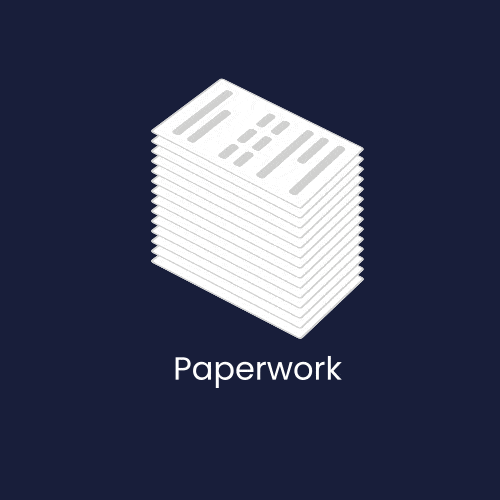The “last mile” of delivery has emerged as a significant focal area for organizations attempting to balance on-time delivery with cost effectiveness in the ever-changing landscape of logistics. This final leg, from distribution facility to doorstep, accounts for a sizable chunk of overall logistics costs. This article delves into techniques for lowering last-mile delivery costs without sacrificing service quality.
The Challenge of Last Mile Delivery
Congested metropolitan areas, variable demand, and the requirement for timely, secure deliveries all contribute to the specific issues of the final mile. These difficulties contribute to rising operational costs, necessitating the adoption of new solutions by enterprises.
1. Route Optimization: Navigating Efficiency
Efficient route design is critical for lowering last-mile costs. Advanced route optimization software examines variables such as traffic patterns, delivery windows, and drop-off places to help firms reduce travel distance and time. Real-time modifications based on traffic updates improve efficiency even further, lowering fuel consumption and maintenance costs.
2. Technological Integration: Driving Delivery into the Future
Adopting technology is critical to improving last mile management.
a. GPS Tracking:
GPS tracking on delivery vehicles offers real-time monitoring, allowing businesses to ensure that drivers adhere to planned routes and schedules.
b. Mobile Apps:
Customized mobile applications for drivers and consumers simplify communication. Real-time delivery updates, order monitoring, and notifications assist to a smoother procedure, reducing customer questions.
c. Automation:
Order fulfillment can be accelerated by automating sorting and loading procedures, Robo Dispatch, reducing warehouse time and allowing for speedier last mile deliveries.
3. Delivery Density: Consolidating Success
Increasing delivery density is an excellent last mile cost-cutting method. Businesses can combine deliveries by optimizing delivery windows and encouraging consumers to select flexible delivery times, avoiding the need for several journeys to the same region. This is especially useful in densely crowded metropolitan areas.
4. Local Warehousing: Proximity Pays Off
Strategic placement of local distribution or micro-fulfillment centers can significantly diminish last mile delivery costs. Storing popular or frequently ordered items closer to the end customer minimizes travel distance, ensuring faster and more cost-effective deliveries.
5. Collaboration and Crowdsourcing: Sharing the Load
Innovative solutions are provided by collaborative approaches such as crowd-sourced delivery services or partnerships with local businesses. Using existing networks to give more flexible and cost-effective solutions, especially during peak demand periods, might be beneficial.
6. Sustainable Transportation: Greener Pastures
Sustainability is more than a catchphrase; it is a practical approach for modern logistics. Adopting electric vehicles, bicycles, or even drones for last-mile deliveries not only decreases carbon emissions but also coincides with environmentally conscious consumer preferences, potentially saving money through government subsidies and lower fuel costs.
7. Data Analytics: Insightful Decision-Making
Last mile management relies heavily on data analytics. Businesses can acquire insights into customer behavior, delivery trends, and potential areas for improvement by analyzing historical data. Cost savings can be achieved by making informed judgments about resource allocation, inventory management, and delivery routes.
8. Customer Communication: The Transparent Touch
Communication with customers must be open and proactive. Giving consumers accurate predicted delivery times, allowing them to reschedule or reroute deliveries, and keeping them informed throughout the process reduces delivery failures and returns, thus lowering total costs.
About nuVizz:
nuVizz emerges as a catalyst for revolutionary efficiency and cost-effectiveness in the field of final mile management. NuVizz plays a critical role in optimizing last mile delivery processes through its unique solutions, assisting businesses in navigating the obstacles of route planning, real-time tracking, and overall logistics orchestration. Companies may streamline their operations, minimize travel lengths, and increase delivery density by using the power of nuVizz’s solutions. The integration of nuVizz’s solutions enables organizations to make data-driven decisions, increase customer interactions, and eventually reduce last-mile delivery costs. In an environment where the last mile is a critical battleground for success, nuVizz is a strategic ally, helping enterprises to not only meet but exceed customer expectations while reaping significant savings in the final stretch of the delivery process.
Conclusion:
Businesses can transform the last mile from a costly hurdle to a streamlined and cost-effective component of their logistics operations by embracing route optimization, leveraging technology, increasing delivery density, utilizing local warehousing, collaborating with partners, adopting sustainable transportation, utilizing data analytics, and improving customer communication. These tactics not only help businesses save money right away, but they also position them for long-term success in an industry where customer pleasure is associated with operational excellence. Those who master the art of last mile efficiency will surely lead the drive towards a future in which timely, cost-effective, and sustainable deliveries become the norm rather than the exception.



